Rationing looms as Iran’s water reserves dwindle
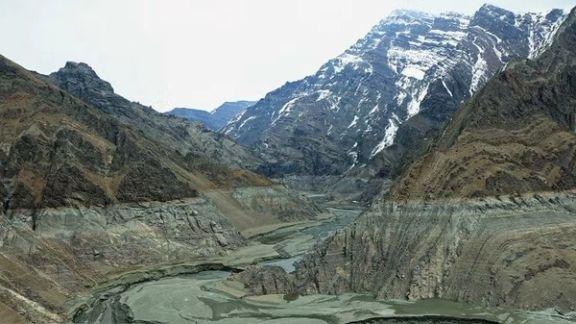
Iran’s water reserves have fallen to critical levels, accelerating the risk of shortages and forcing officials to consider rationing months before peak summer demand.

Iran’s water reserves have fallen to critical levels, accelerating the risk of shortages and forcing officials to consider rationing months before peak summer demand.
The capital Tehran’s water supply is particularly strained, with reservoirs at their lowest levels in years.
“The situation at key dams is concerning,” said Mohammad Javanbakht, deputy energy minister and head of Iran’s water resources management company.
“With a 47 percent drop in rainfall in Tehran province, the Lar, Latian, Mamloo, and Karaj dams, which supply much of the city’s drinking water, have seen significant declines," he added.
In recent weeks, images and videos of receding water levels at Tehran’s reservoirs have circulated widely, fueling public concern over worsening shortages.
In a report on the state of stored water behind dams, the Ham-Mihan newspaper wrote on Sunday: "The situation of the country's dams is so critical that water shortages and rationing will occur earlier than summer, and the state of Tehran's water resources has reached a crisis level unprecedented in recent years."
On Friday, Tehran’s water and wastewater company, Abfa, announced that water consumption had spiked 20 percent, reaching a record 48,000 liters per second. Officials attributed the surge to Iranian New Year preparations.
According to Abfa, rainfall since the start of the current water year has been the lowest in 57 years. “Without additional rainfall, current reserves should meet demand for at least the next three months,” it said.
The energy crisis, marked by widespread electricity shortages and gas deficits, has also disrupted industries across the country. Ageing infrastructure, international sanctions, and poor management have compounded the problem, leading to the shutdown of approximately 80 power plants and closure of businesses.
During the winter, Iran faces a daily shortfall of at least 260 million cubic meters of gas, further straining the electricity supply.
Iran has vast oil and gas reserves, much of which it cannot tap due to US-led sanctions which stall investment and technology improvement.
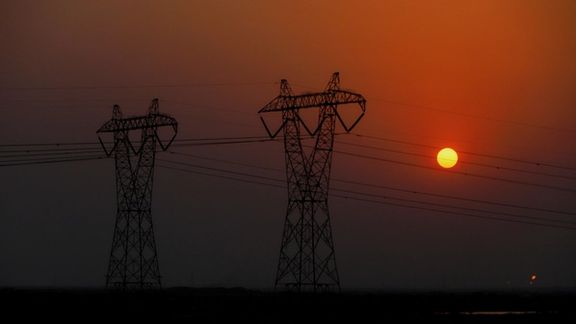
The expiration of a US sanctions waiver permitting Iraq to purchase Iranian energy poses short-term operational difficulties, the Iraqi prime minister's foreign affairs adviser told Reuters on Sunday.
Farhad Alaaeldin said that the expiration of the waiver “presents temporary operational challenges,” adding that “Iraq was committed to its strategic goal of achieving energy self-sufficiency".
The Trump administration revoked Iraq’s sanctions waiver to pay Iran for electricity on Saturday as part of President Donald Trump's so-called campaign of maximum pressure against Tehran.
"The government is actively working on alternatives to sustain electricity supply and mitigate any potential disruptions," Alaaeldin said.
"Strengthening energy security remains a national priority, and efforts to enhance domestic production, improve grid efficiency and invest in new technologies will continue at full pace," he added.
A State Department spokesperson said that the decision "ensures we do not allow Iran any degree of economic or financial relief,” adding that Trump's campaign on Iran aims "to end its nuclear threat, curtail its ballistic missile program and stop it from supporting terrorist groups."
The spokesperson said: "We urge the Iraqi government to eliminate its dependence on Iranian sources of energy as soon as possible ... Iran is an unreliable energy supplier."
The spokesperson played down the impact of Iranian electricity imports on Iraq's power grid, saying, "In 2023, electricity imports from Iran were only 4% of electricity consumption in Iraq."
Washington seeks to isolate Iran economically and cut its oil revenues to hinder nuclear development—claims Tehran denies, insisting its program is peaceful.
"President Trump has been clear that the Iranian Regime must cease its ambitions for a nuclear weapon or face Maximum Pressure," said National Security spokesperson James Hewitt. "We hope the regime will put the interests of its people and the region ahead of its destabilizing policies."
The US has long urged Iraq to reduce reliance on Iranian energy. The waiver’s removal is also seen as part of Washington’s push for Baghdad to resume Kurdish oil exports via Turkey to help stabilize global prices.
"Iraq’s energy transition provides opportunities for US companies, which are world-leading experts in increasing the productivity of power plants, improving electricity grids, and developing electricity interconnections with reliable partners," the State Department spokesperson noted.
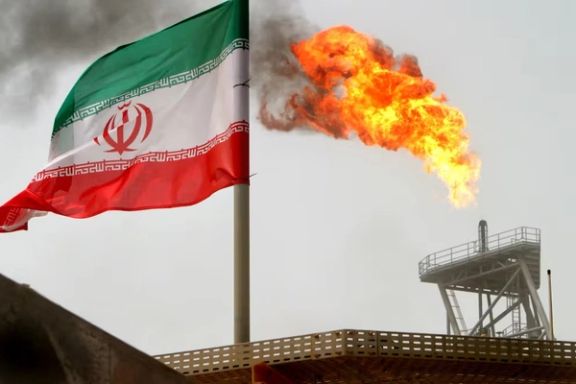
On Saturday, Iran's president criticized US efforts to curb the country's energy exports but made no mention of the letter President Donald Trump said a day earlier that he had sent to Supreme Leader Ali Khamenei.
Speaking at an event marking new investments in the South Pars gas field, Masoud Pezeshkian said Iran had endured a difficult winter but managed to keep gas supplies flowing.
“We went through a tough winter,” Pezeshkian said. “Once again, I apologize to the people for power cuts and other issues. Naturally, we must also apologize to industries and producers because we could not fully support them.”
Turning to US sanctions, Pezeshkian dismissed Washington’s efforts to stifle Iranian fuel exports. “They try and say they will bring our fuel exports to zero, that we won’t be able to sell our oil,” he said. “I believe we must engage with a proper logic and not fight amongst ourselves. Their hope is in our internal divisions.”
President Trump announced on Friday that he sent a letter to Khamenei offering talks toward a deal on its nuclear program but warned that the alternative was a military intervention.
"I hope that Iran, and I've written them a letter saying, I hope you're going to negotiate because if we have to go in militarily, it's going to be a terrible thing for them," Trump said in a segment of the interview broadcast on Friday.
"There are two ways Iran can be handled, militarily or you make a deal. I would prefer to make a deal because I'm not looking to hurt Iran," Trump added. "They're great people. I know so many Iranians from this country."
Since returning to office, Trump has imposed fresh sanctions targeting companies and the so-called shadow fleet of older oil tankers transporting Iranian crude.
Despite US sanctions, Iran’s oil exports have generated more than $35 billion annually in recent years, primarily from sales to China. However, this revenue has not been enough to pull the oil-dependent economy out of the severe crisis it has faced since 2019.
Since early September, Iran’s national currency, the rial, has lost half of its value due to military and geopolitical setbacks in the region and Trump’s election, as he has pledged to significantly cut Tehran’s oil exports.
Pezeshkian praised efforts by Iran’s oil and gas sector to maintain household energy supplies but said the country must improve efficiency and expand renewable energy.
Pezeshkian announced a $17.5 billion investment in power infrastructure aimed at increasing sustainability and allowing more oil and gas to be sold abroad.
Iran needs $45 billion in investment to resolve its chronic winter energy deficit and worsening air pollution, the country's Oil Minister Mohsen Paknejad said in January.
“If we can expand electricity use for heating and cooling, relying on wind and solar energy, then we can export our resources at far better prices,” said Pezeshkian.
Successive Iranian governments have struggled to meet soaring consumption, especially during colder months when power plants are forced to burn polluting fuels that compound the problem of air quality in urban areas.
Iran possesses vast reserves of natural gas, but rising domestic demand and lack of investment to maintain and expand the infrastructure means the country is often a net-importer of energy.
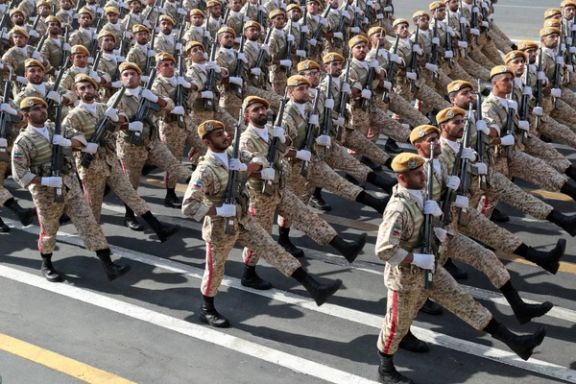
An Iranian army commander has said the country’s military remains fully prepared for any scenario as diplomatic uncertainty deepens between Iran and the US.
Brigadier General Nozar Nemati, deputy commander of Iran’s Army Ground Forces, said that Iran’s military remains on high alert. “The armed forces, especially the Army, are always ready to defend the ideals of the Islamic Republic and protect the country’s borders,” he told IRNA on Saturday.
His comments came just hours after US President Donald Trump revealed that he had sent a letter to Iran’s Supreme Leader Ali Khamenei, offering negotiations but warning of military consequences if talks fail over Iran's nuclear program.
"I hope you're going to negotiate because if we have to go in militarily, it's going to be a terrible thing for them," Trump told Fox Business Network in a segment of the interview broadcast on Friday. "There are two ways Iran can be handled: militarily or through a deal. I would prefer to make a deal".
Later on Friday, Trump told reporters at the Oval Office, “We are at the final moments with Iran,” adding that “something’s going to happen very soon.”
The letter was swiftly rejected by an official outlet of Iran’s Islamic Revolutionary Guard Corps (IRGC), dismissing it as a psychological operation. Iran’s UN mission in New York also stated it had received no such letter.
Iran’s Foreign Minister Abbas Araghchi, speaking on Friday, had accused Israel of trying to pull the US into a regional war. “It is Israel’s desire to involve other countries in war. It is Israel’s desire to draw America into war,” Araghchi told AFP, warning that US intervention would leave Washington “extremely vulnerable.”
Amid the growing tensions, Nemati reaffirmed Iran’s border security efforts, noting that the country has reinforced its defenses and remains in coordination with IRGC forces. “Our forces are stationed across all critical border areas, working in complete harmony to ensure security,” he said.
Iran has also continued large-scale military drills, including Zolfaghar 1403, which last month showcased its naval, air, and ground combat capabilities.
Trump’s remarks come as his administration escalates its economic pressure campaign on Iran. On Thursday, US Treasury Secretary Scott Bessent outlined a renewed “maximum pressure” strategy aimed at cutting Iran’s oil revenues and further devaluing its currency.
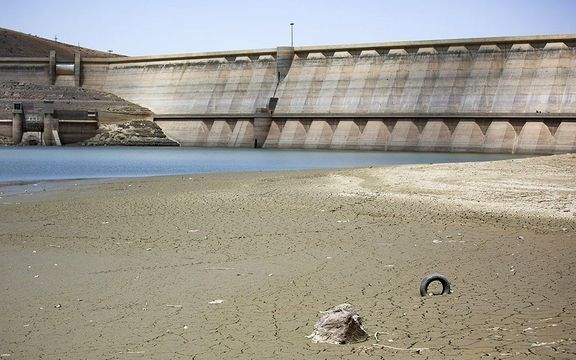
Iran’s capital Tehran is facing a severe water crisis as officials warn the lowest rainfall in nearly six decades has left key reservoirs dangerously depleted.
“The amount of rainfall in Tehran province since the start of the current water year has been the lowest in 57 years,” head of Tehran's Water and Wastewater Company Mohsen Ardakani said on Friday.
The four reservoirs supplying Tehran's water are only six percent full, he added, urging the capital's residents to bring down use.
Water consumption has surged as Iranians embark on their traditional extensive household clean-up before their New Year on March 20th.
On March 1, the city hit a record 48,000 liters per second in consumption—a 20 percent increase despite the cold weather.
“This kind of surge is something we’ve never seen before,” Tehran's water company said in a statement.
Beyond Tehran, much of Iran is struggling with severe water shortages, with nationwide rainfall dropping by 45 percent compared to last year and dam inflows down 29 percent from the five-year average.
Iran has been classified as “extremely high water stress” by the United Nations, which means the crisis may bring about lasting economic, environmental, and social consequences if the trend continues.
Protests over water and its allocation are common in Iran, especially in the country's arid central regions like Isfahan, where farmers blame the government for the mounting crisis.
The situation has also fueled regional tensions, with Iran accusing Afghanistan’s new-built Pashdan Dam of restricting critical water flow to its eastern provinces.
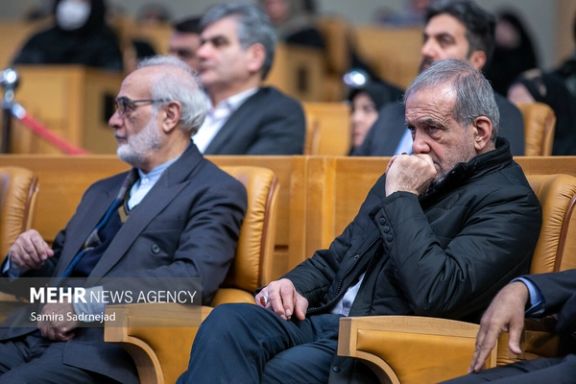
Iranian President Masoud Pezeshkian stands at a critical crossroads: should he continue pushing for his political vision despite mounting opposition, or bow to pressure and step down?
In recent days, Pezeshkian has expressed growing frustration over obstacles confronting his administration.
Four issues stand out in particular: the formal adoption of the hijab law, negotiations with the United States, the impeachment of Economy Minister Abdolnaser Hemmati, and the forced removal of Strategic Deputy Mohammad-Javad Zarif from the cabinet.
Despite emphasizing "unity," Pezeshkian seems increasingly doubtful that his so-called "unity government"—which includes only four reformist ministers, while key positions remain dominated by hardliners—can deliver on his campaign promises.
Meanwhile, his political opponents, deeply entrenched in other centers of power, continue to undermine his efforts.
Signs of defiance
On Wednesday, Pezeshkian's executive deputy, Mohammad-Jafar Ghaempanah, made a striking statement on platform X, saying that Pezeshkian would continue to refuse to enforce the hijab law, despite pressure from his hardline rivals.
The law, dormant since receiving final approval from the ultra-hardline Guardian Council in mid-September, was suspended by the Supreme National Security Council (SNSC) amid concerns of public backlash.
Such a decision could not have occurred without the approval of Supreme Leader Ali Khamenei.
The President’s refusal to sign and formally announce the controversial law is therefore largely symbolic—Parliament Speaker Mohammad-Bagher Ghalibaf retains the power to activate it whenever Khamenei’s appointees in the SNSC and other power centers decide to shift their stance.
While Pezeshkian had previously voiced opposition to the hijab law, his recent statements have been more assertive. “I will not stand against the people,” Ghaempanah quoted him as saying.
Beyond this, Pezeshkian has increasingly distanced himself from policies dictated by higher authorities, including Khamenei.
Last week, he openly admitted that direct negotiations with the US to lift sanctions—something he supports—are not taking place because Khamenei opposes them.
This marks the first time an Iranian president, while still in office, has directly and publicly acknowledged a major policy disagreement with Khamenei on such a critical national issue.
Equally telling was Pezeshkian's reaction to the hardline-dominated Parliament’s impeachment and removal of the economy minister on March 2.
Under the law, the President has three months to propose a replacement to Parliament. However, ultra-hardline lawmaker Meysam Zohourian claims Pezeshkian stated as he left Parliament that he would not nominate a successor.
Additionally, over the past six months, Pezeshkian has resisted opponents' demands to remove his Strategic Deputy Mohammad-Javad Zarif from the cabinet, recognizing Zarif's potential significance in negotiations with the United States.
On March 2, after meeting with Chief Justice Mohseni-Ejei, Zarif posted on X that the Chief Justice advised him to return to academia to prevent further pressure on the government.
Government spokeswoman Fatemeh Mohajerani later confirmed that Zarif had submitted his resignation, but President Pezeshkian has not yet approved it.
Is Pezeshkian's resignation on the table?
During his campaign, Pezeshkian stated he would step down if he found himself unable to deliver on his promises.
Some reformist politicians and activists are now calling on him to follow through, arguing that if he cannot enact meaningful reforms, he should resign.
Others believe it is too early to surrender and are urging him to continue.
Meanwhile, ultra-hardliners have intensified their calls for his resignation, citing Iran’s worsening economic crisis.
Pezeshkian has not publicly addressed the possibility of resignation.
A source close to his office told Iran International Pezeshkian is feeling shaken after losing Hemmati and Zarif from his cabinet, but also said he is not a quitter.
However, emboldened by the 200 votes of no confidence against Economy Minister Hemmati—more than two-thirds of all lawmakers—ultra-hardliners could push to impeach Pezeshkian if he grows more defiant.
Under the Islamic Republic's Constitution, the president can be impeached if one-third of lawmakers support the motion. If two-thirds vote against him, he can be removed from office.
Only once in the past 46 years has Parliament taken this route—when it ousted Abolhassan Banisadr, the Islamic Republic’s first president, in 1981.